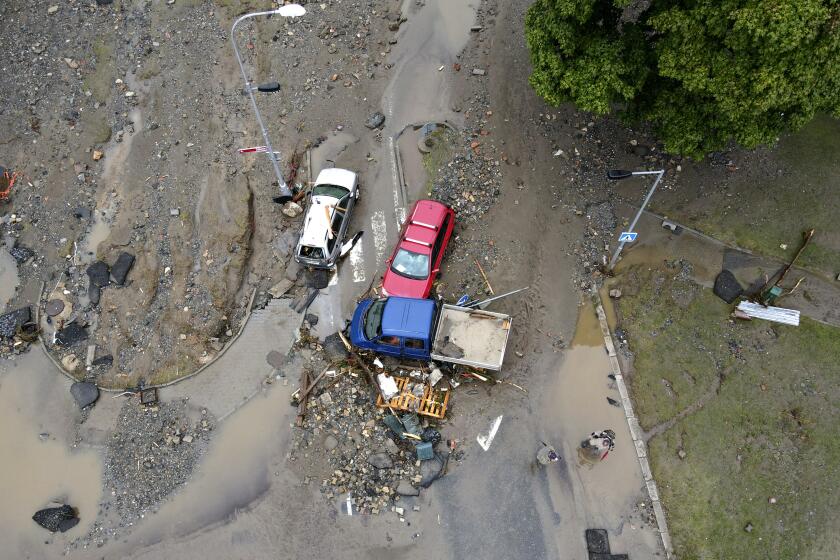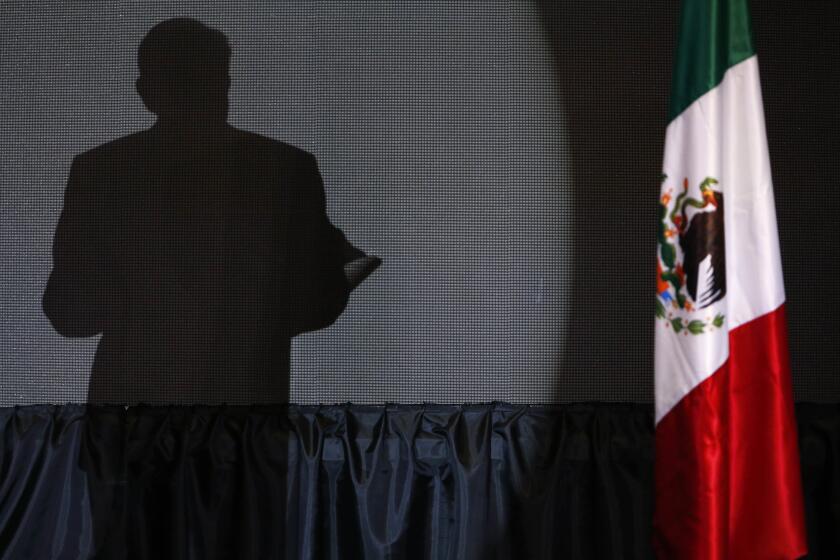Israel army clears itself in Gaza war
The Israeli military said Wednesday that internal investigations concluded that the army “operated in accordance with international law” throughout last winter’s war in the Gaza Strip against Hamas fighters who terrorized Israeli civilians and, according to the army, exploited Palestinians as human shields.
The Israel Defense Forces conceded that Palestinian civilians died because of mistakes in intelligence and targeting, but said the military did not find any case in which a soldier deliberately shot a civilian. International human rights organizations have called for independent investigations into war crimes allegations against the Israelis.
Army Chief of Staff Lt. Gen. Gabi Ashkenazi appointed five colonels to investigate soldiers’ conduct during the operation, known in Israel as Operation Cast Lead. They examined “tens” of cases involving claims that the military had targeted United Nations and other international facilities, as well as medical facilities and personnel. They also studied incidents involving particularly high numbers of civilian casualties, use of weapons containing phosphorus, and damage to infrastructure and destruction of buildings by ground forces.
“The investigations revealed a very small number of incidents in which intelligence or operational errors took place during the fighting,” the army said. “These unfortunate incidents were unavoidable and occur in all combat situations, in particular of the type which Hamas forced on the IDF by choosing to fight from within the civilian population.”
Defense Minister Ehud Barak expressed regret for the suffering of innocent people but said the Israeli army did not fear investigations and was one of the world’s most moral forces.
Like many disputes during the war, the number of victims has been a matter of intense disagreement.
In March, the army said that of the 1,166 Palestinians killed during the operation, 709 were “Hamas terror operatives.” A further 162 men, the military said, “have not been yet attributed to any organization.” And it said that 295 of those who died -- about a quarter of all fatalities -- had been “uninvolved civilians.”
Left-wing Israeli legislator Ilan Gilon said that “calling the death of 295 civilians an ‘operational malfunction’ is a cynical perception of human life.”
One of the actions the army classified as a mistake occurred Jan. 6 in the Gaza City neighborhood of Zeitoun. Intelligence had provided information about a target believed to be a weapons cache. The army’s standard warning by phone and other measures was issued to the right address, but the air force was given different coordinates and 21 members of a family were killed.
Concerning the use of white phosphorus, the army has maintained that all use of such munitions was in keeping with international law. Still, it discontinued the use of phosphorus relatively early because of criticism. Human Rights Watch has charged that Israel’s use of phosphorus was indiscriminate, caused unnecessary suffering and death, and constituted evidence of war crimes.
Allegations of war crimes have persisted since the fighting ended in January. A number of soldiers have come forward to say that in some cases civilian Palestinian lives were not respected.
The Israeli government has pledged its legal support to any officials or soldiers who might be charged abroad. News reports from Oslo said Wednesday that a group of lawyers filed a complaint accusing 10 Israelis of war crimes in Gaza under Norway’s new universal jurisdiction law.
Former Israeli Prime Minister Ehud Olmert, Barak and opposition leader and former Foreign Minister Tzipi Livni were among the 10.
Israeli and international rights organizations have urged Israel to cooperate with a U.N. inquiry led by Richard Goldstone, a South African judge who formerly was chief prosecutor for the war crimes tribunals on Rwanda and the former Yugoslavia.
--
Times staff writer Jeffrey Fleishman in Cairo contributed to this report.
More to Read
Sign up for Essential California
The most important California stories and recommendations in your inbox every morning.
You may occasionally receive promotional content from the Los Angeles Times.










